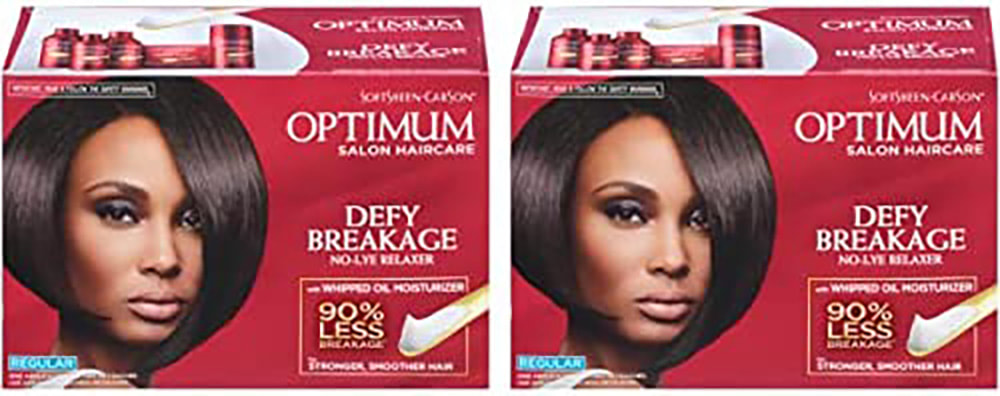|
What You Need to Know
Three lawsuits over hair relaxers made by Revlon, L’Oréal and others join other cases that focus on consumer products targeted to Black women.
The lawsuits—filed in federal courts in New York, California and Illinois—follow an Oct. 17 study from the National Institute of Environmental Health Sciences that found women who used hair relaxers more than four times a year were more than twice as likely to develop uterine cancer. Chicago’s DiCello Levitt announced the lawsuits on Monday—two on behalf of women with uterine cancer and one with uterine fibroids. Diandra “Fu” Debrosse Zimmermann, co-chairwoman of DiCello Levitt’s mass tort practice group, said her firm plans to file additional cases “in the near future.” “People change their hair styles and change their look, but when you’re selling a product to alter someone’s hair that creates a higher risk of cancer and fibroids and real, life-altering issues, there’s a problem,” Zimmermann said. “This is a significant moment for a lot of women. And I think that in churches and in schools and in academia, folks are going to be talking about what our lawsuits are about, and about the women in their family who need justice, and the women in their family who used this since they were kids and have these conditions.” Zimmermann, an attorney in Birmingham, Alabama, co-founded an organization called Shades of Mass, which is designed to promote minority lawyers to leadership roles in mass torts, with Ben Crump, of Ben Crump Law in Tallahassee, Florida. Crump joined her in filing one of the relaxer lawsuits. In other lawsuits, DiCello Levitt has teamed with Larry Taylor, who oversees the mass torts, criminal, employment and civil rights practice areas of The Cochran Firm in Houston, and Danielle Mason, founding partner of Bullock Ward Mason in Acworth, Georgia. Mason said she planned to file two more lawsuits this week. She said she and Zimmermann were already investigating hair relaxers for alleged links to uterine fibroids and endometriosis when the study was published. “Given the wide variety of injuries, we anticipate this litigation will be very extensive, that it will impact about 70% or more of the African American population, particularly its women,” she said. Mason is one of them. She said she started using hair relaxers at the age of 8. By age 12, she was diagnosed with ovarian cysts, and then endometriosis. Her first child was born prematurely—another condition linked to hair relaxers. After she had her second child, a decade later, she was gearing up to handle the talcum powder litigation, but her endometriosis symptoms had gotten worse. “I knew what was going to be expected of me,” she said. “There’s no cure for endometriosis. My only option for permanent relief was a hysterectomy, and I had that 36.” ‘Got My Eye Toward Toxic Products’ The products are sold under various names, including Just for Me, Dark & Lovely, Motions and Optimum Care. A Revlon spokesperson declined to comment, and a L’Oréal representative did not respond. Other companies named in the lawsuits are Strength of Nature Global, Dabur USA, Namaste Laboratories and Softsheen-Carson. Representatives of those companies either could not be reached or did not respond to a request for comment. The lawsuits are the latest brought on behalf of Black women alleging they were harmed by defective consumer products. Many of the ovarian cancer lawsuits against Johnson & Johnson about its baby powder involved Black women, who were frequent customers and specifically targeted with the product’s marketing. “I was the only woman, and only person of color, who tried talc powder cases against J&J over ovarian cancer,” Mason said. “Obviously, that was what got my eye toward toxic products and those that are prevalent in the Black community.” This month’s study was based on data that sought to identify risk factors for breast cancer. Of the 33,497 women in that study, who ranged in age from 35 to 74, 378 got uterine cancer during an 11-year period. The lawsuits allege the relaxers contain compounds, such as phthalates, which are “endocrine disrupting chemicals” that cause conditions such as endometriosis, uterine fibroids and preterm deliveries. The lawsuits also add to a spate of health risk claims focused on hair care products. Last year, Procter & Gamble recalled its Pantene dry shampoo for containing dangerous levels of benzene. And, in 2018, lawsuits were filed over Monat hair care products, which consumers alleged had toxic chemicals in them that caused hair loss, balding and other problems. Black hair has been the subject of potential legislation, including the CROWN Act of 2021, a bill that would protect women of color from discrimination based on their hair styles. “These issues about hair texture and attractiveness and assimilation in this way was leveraged by the companies that we named as defendants,” Zimmermann said, “to sell a product as we alleged they knew was dangerous.”
0 Comments
Leave a Reply. |
HISTORY
April 2024
Categories |
© Walk 4 Change. All rights reserved.


 RSS Feed
RSS Feed